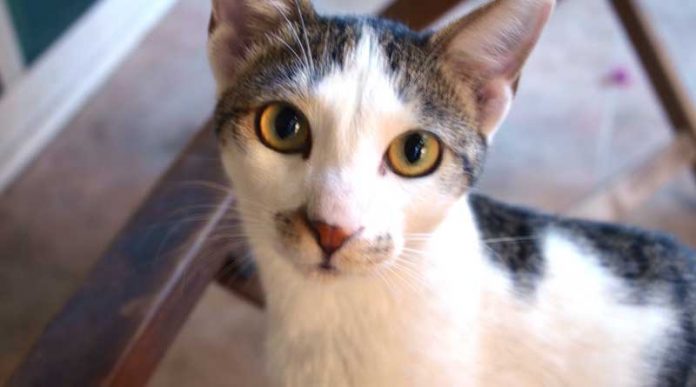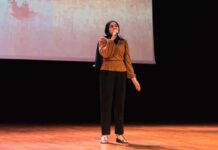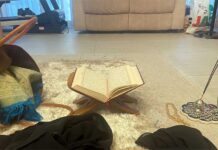By Zehra Qureshi
Sharjah, UAE – The campus of the American University of Sharjah is home to many feral cats.
But who is looking after them? How safe is it for them to live as they do? At AUS, most of the work of taking care of the animals comes from volunteers.
Christina Dox, an AUS resident, is one of these volunteers. She said 14 years ago, the first group dedicated to helping cats was formed. This group was named Muezza. The initial intention was to neuter and feed stray cats. Also, on Global Day, members of the group collect funds and look for homes for the stray animals.
Dox said that many cats are dumped on campus by outsiders.
“I personally saw a couple close to the back gates stop their car, open their trunk, and take their cat carrier and throw their cat through the holes in the fence,” she added.
Dox and the other volunteers do not receive any money for the work they do. All the vet bills for sick or injured animals are paid for by the volunteers themselves.
During the Covid-19 pandemic, people started abandoning their pets, some believing that their animals could pass the virus onto humans.
According to the United States Centers for Disease Control and Prevention website, no evidence supports this idea. They state that the probability for this to happen is low. Ironically, the evidence seems to point to humans spreading it to animals instead.
Former AUS professor, Polly Palmer, used to volunteer to help strays at the university.
She said, “they face a horrible life of scavenging for food, incurring injuries from people and vehicles and contracting virulent diseases.”
Her daughter Shireen also has six rescue kitties from AUS and Sharjah. Palmer said she found four kittens left at a building site at AUS. The AUS community assisted in providing Palmer with the money for kitten daycare.
Palmer added, “Neutering is the safest, most humane way to ensure a good life for stray cats and dogs. The attrition rate for kittens born on the street is enormous.”
Nathalie Kondrat, who works at AUS’ sports complex, also helps with strays. She assists Christina in trapping cats and neutering them.
“Many of them require very costly pet treatment,” Dox said.
One of the cats they found at the sports complex was badly injured. The cat’s leg was broken. The operation cost a lot of money.
Kondrat said, “We simply take animals and we go to veterinary clinics for medical service and we pay from our own pockets.”
Kondrat rescued one of her cats on campus. She also adopted another cat she found in University City. The cat had been thrown from a car window and its leg was injured.
The UAE has enacted strict laws against animal cruelty. Federal Law No.18 stipulates that individuals guilty of abusing animals face a fine or a one-year prison term.
Theyab Al Dhamarki is an Emirati student studying International Studies at AUS. He also helps stray animals at the university. He donates money, food and other resources. He also takes part in the Trap-Neuter-Return Program assisting in capturing and sterilizing cats. He added that he transports and takes sick cats to the vet.
“I have also been in contact with the administration for months to address the concerns of cats on campus,” he said.
One of the concerns was supplying the feeding stations with food and water on a regular basis.
Dox said, “One of the things that you are going to see is that a lot of amazing people are helping animals. It is very important to create awareness for this situation because many people don’t know.”


















